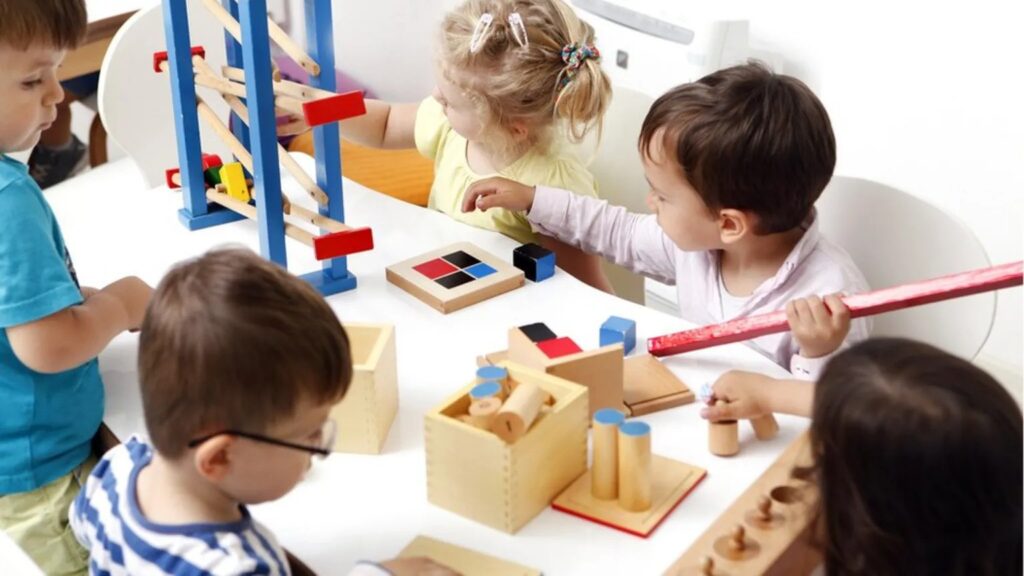
Montessori Language Activities in Montessori Education
What is Montessori Language Activities
- Language can be defined as, „a system of communication consisting of sounds, words and grammar, or the system of communication used by the people of a particular country or profession‟ Language is a set of abstract symbols which the group, through convention, uses to indicate a particular idea. It can take many forms, oral, written, signed, symbolic (e.g. + for First Aid) and through gesture. We also use language internally to hold abstract ideas in the mind. In order to acquire language exposure to a group of able users is necessary.

- Language has two components, vocabulary and syntax:
- 1. Vocabulary – words become linked to their meanings by associations in the brain
- 2. Syntax – gives the relationship between words to create meaningful phrases and sentences
- Spoken language connects a limited number of sounds, there are around 44 phonemes in English Language, the exact number depends on the speakers accent, in a systematic order to create infinite meanings.
Montessori Languages Activities Groups
1. Language
2. Written Language
3. Handwriting
4. Reading
5. Total Reading
6. Reading Analysis
Oral Language Exercises
- When the child arrives in a Montessori classroom, he already has a completion of the spoken language.
- During his first three years of life, the child has been constructing his language and now, in the Montessori classroom, he will be consolidating what he knows. Because the child’s will is being constructed, he can consciously begin to explore language. This is the perfect time for the child to gain the correct tools in his home language.
- To teach the child correct oral language, Montessori split the learning into two groups.
The first group she called:
“The Enrichment of Vocabulary”

- In these activities, the child learns new words on a daily basis through formal lessons and classified groups.
- The second group of oral work is called:
“Language Training” - In these Exercises, the child experiences a great variety of language experiences.
- He learns through the many forms of literature, Exercises in self-expression, and games to learn the grammar of the language.
- Through both of these groups of Exercises, the child’s later learning in reading will be facilitated by the recognition of words. This is the foundation for all other language expressions.
